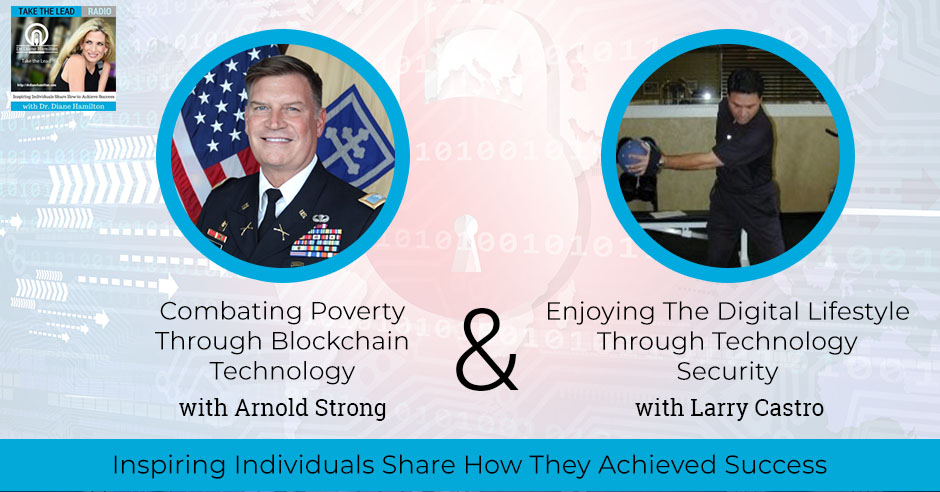
We have Arnold Strong and Larry Castro. These guys are super bright. This show you have to pay attention because Arnold is a USA Air Force Colonel retired. He is with Unify Earth. He’s a humanitarian. Larry Castro is the CEO of Stealth Grid. He’s a cybersecurity expert. Both of them are talking about blockchain security.
Listen to the podcast here
Combating Poverty Through Blockchain Technology with Arnold Strong
I am here with Arnold Strong who is a humanitarian, communications strategist, management consultant, and visionary. He serves on several veteran-focused nonprofits to help humankind around the world. It’s nice to have you here, Arnold.
Thank you so much.
You’re doing some amazing stuff and I don’t even know where to start. What I’ve heard is you’re combating world poverty with technology. I want to know what that means and how you’re doing that.
I’m a retired Army Colonel. I spent my time split between the regular army, the Army National Guard, of a couple of states and the Army Reserve where I finished off my service. I am a veteran of Iraq and a couple tours in Afghanistan. My background as a Ranger Infantry guy is less significant to my career perspective than as a public affairs officer. That’s how I got involved with the enterprise Unify Earth Network. A former mentor and fellow board adviser friend of mine, Bo Rinaldi, who is our Chief Executive. I worked with Bo many years ago when I first got back from Afghanistan. We’ve stayed in touch but not professionally. Just work to support each other. I had retired a couple of years ago. I immediately the next day started at an artificial intelligence company as its Communications Director. A venture-backed, machine learning company called DeepCurrent. I like to diversify my skill set. I like to work with younger voices. I sometimes have a hard time when a twenty-something is lecturing a retired army colonel in strategy. Bo asked me how that AI thing was doing. I said, “That’s going okay.” He said, “I’ve got to show you something,” and I flew up and I joined Unify Earth almost immediately. We started to work together at fall and then formally in January. It’s been the biggest scope mission I’ve ever been involved with.
Bo was on the show. You have quite an interesting background. It doesn’t sound like you retired, like the next day you’re working.
I retired at 1700 the day before and at 0530 the next day I was at my artificial intelligence startup. Albeit with a suit and tie, which I was immediately told is not the vogue for being an artificial intelligence startup. It was much more Chuck Taylor’s, khakis and polo shirts after that.
That’s got to be a difficult transition to go from being a colonel to going into that industry.
It could be read that way. If you step outside of the uniform, military service is service. It’s leadership. It’s organizational behavior. It’s everything that you learn in a business school environment. End up executing in the military, whether you’re at a tactical level of being a private corporal or sergeant or an operational level as a sergeant first class and a captain or as a strategic level as a colonel. It’s organizational behavior. Let’s be honest. Less than half of 1% of American citizens either serve or have an immediate family member in service to the nation. The lowest percentage we’ve ever had in our history, especially when we’re fighting the longest war in our nation’s history. I don’t take that for granted. I know that there is a differentiation. It’s less difficult, it’s sometimes easier for veterans to integrate into the business environment once they have the tools, tactics, techniques, and information to be able to thrive. I certainly had that. The dear friend of mine who hired me immediately after I retired, he told me six months out he said, “I’ve got something you need to apply for as soon as you retire.” That was a good endeavor.
[bctt tweet=”The blockchain is ultimately an immutable truth ledger.” username=””]You got into such a complicated field. The blockchain is part of what you’re dealing with. I was at a tech conference at DesTechAZ in Arizona where Wozniak was there. They have pit bulls dealing with some of the stuff even. I’ve had Bitcoin experts and different people on my show. How are you using blockchain? Unify Earth is talking about ending poverty or having a real solution. What are you doing? How are you doing it?
There are a lot of tech leaders that are talking about this being the era of the blockchain. Much like in the ‘90s they were talking about the emergence of the Internet economy and all that. I call it more an era of truth. What the blockchain truly is ultimately an immutable truth ledger. You’ve got life’s validated chunks of information that can be shown to be true that is then digitized and confirmed by multiple node holders so that you have a confirmation of a truth ledger. What that does is as its elemental level on a financial level you get the fact that you don’t have double spends. You don’t have counterfeiting. You don’t have the need for brokerage or escrow. You’re selling a property. I’m buying a property. We get together. We’re validated. We know our identities are validated to be true. We are good for this money, etc. and we conduct a transaction. That saves money. That’s an elemental look at this. The reality is that we realized that something was missing, not technologically, but from a leadership perspective. In that the blockchain you see a lot focused on cryptocurrencies. Cryptocurrencies are to email what the blockchain is to the Internet. It’s exponentially vaster than this simple thing that is our gateway into the community which is the crypto exchanges that you see happening. That’s part of our strategy.
When you talk about Bitcoin and if you’re buying and selling and doing things on the simple level, you’re dealing with passwords. If you lose passwords, you lose everything. Is it the same concept for this that you’re talking about on the big scale?
Inside that you’ve got to make sure that you’ve got a secure system yourself because ultimately, you’re talking about a series of sequences that don’t get attacked, that doesn’t get compromised, that can’t get hacked by others. You need to make sure that you’ve got your own security protocols in place. The way these crypto attacks that have happened are ultimately through the weakest point of entry, which is the wallet. We think that we’ve got a distinguished wallet. We realized that one of the pieces that were missing in this community is the values orientation. We consider ourselves to be values first, values forward technology platform. We’re guided by the seventeen Sustainable Development Goals of the United Nations. We lead with developing a future-proof platform that’s designed for the good of all humanity. We came back from the United Nations. We’re there for the United Nations General Assembly and part of the Sustainable Development Goals Media Zone. We hosted a breakfast there with several of our partners, several delegates. It was an excellent time to be in New York and a great place to see how public-private partnerships more than the bureaucracies of government.
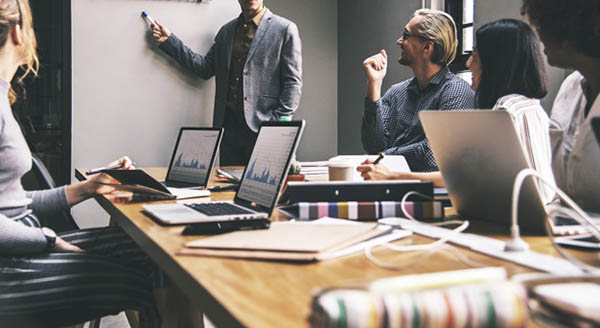
Technology Security: It would be easier for veterans to integrate into the business environment once they have the tools, tactics, techniques, and information to be able to thrive.
Partnerships between governance, nonprofits, for-profits, small organizations, and community organizations are partnering to tackle these seventeen Sustainable Development Goals. Those 193 nations have agreed upon as the things that they want to achieve by 2030. The first of those and where we think is how we can tackle this is no poverty. There is no reason for poverty. There is none. We’ve got more than enough resources to provide for those on the planet to make sure everyone is well and to realize there are systems in place that we can do that. We close at seventeen, which is partnerships and that’s where we think that we can bracket. I’m a military guy, I like to bracket things from one to seventeen and bracket inward. They could see an awful lot more about this on our website. Our goals are the inclusion beginning with the youth of the world. We’ve got several operational objectives that we’re working on to engage young people and to get every global citizen interested in a more sustainable and equitable future for all of us.
If we can solve poverty, why haven’t we? What’s the big obstacle?
That gets into everything from history lessons to current economics. It’s a legacy system. It’s a legacy system that was good. It got us to where we are here. I try to put in the context of there’s two versions of the future we can tip towards. One is Philip K. Dick who wrote Do Androids Dream of Electric Sheep?, which later was adapted to Blade Runner, which means this completely dystopian technology lack and technology dominant and we’ve got bleakness on the horizon and environmental catastrophic chaos where everyone’s fighting for survival. We can choose to focus towards a Gene Roddenberry Star Trek future where there is no such thing as wealth. Every nation is collaborating together to save this pale blue dot and to realize that our place is not just terrestrial but celestial. We can be these interplanetary beings that writings have written about so long as we take care of this place that we call home. Take care of each other in the process. Make sure that we’re working towards sustainable objectives that we can achieve that we can make this world a better place that we can pass on. I’m a father. I want to pass on a better world to my kids and eventually their kids, and I know that most people do. We’re dealing with a legacy environment that needs to evolve.
There’s much talk about what technology’s going to do to our workplace here in the US. I know you’re dealing with poverty-stricken countries and all that. How are we going to do all these things when we’re having technology displace many of our own people and that maybe need to be retrained? The trucking industry where are they going to go and all the different industries? Are you dealing with that or are you dealing strictly with third world issues? What are the most poverty-stricken countries? What are you doing for the overall picture here in the United States as well?
Ultimately, we see the future of or at least the middle ground future of the global economy is going to increasingly digitize. It’s going to increasingly digitize in asset and is going to be less about fiat currency exchange than it is about real assets. Right now, if you get into a token exchange or a digital asset exchange, you’re trading your Bitcoin for your Litecoin for your Ripple you’re trying to short. You’re doing a little bit of understanding the market. It’s the same thing as playing the stock market if you’ve got a trading account, you can work on that. We see that being a path. We also see that you can trade for fiat. You can trade for real assets like gold, like sustainably-harvested mahogany, like clean air. If you want to separate some of your transaction towards 1.5% or 2% of every transaction I make is going to go towards this Sustainable Development Goal. By specifically partnering with this agency that measures the air quality in continental aggregates. We want a partnership with an organization that is extraordinary. Their objective is literally the eradication of infectious diseases in Africa. They’re realizing that tackling that deals with the partnership. Tackling that deals with working with intergovernmental agencies, working with finance, working with each sovereign country on a day-to-day basis. They’re called Kinect. That’s one of our partnerships. HOPSports is another one of our partnerships.
How do they partner with you? What do they do to help you? What do you do to help them?
Our company is domiciled in the Bahamas. We finished with Kinect Hub. Their Chief Executive’s leaving our partners, which are getting in and figuring out our plan. Making sure they’re properly banked and making sure we get them listed and cleared so they can tokenize their asset on our exchange. Realize that there is a raise that they want to do in figuring out their tokenization. Figuring out what Sustainable Development Goals they want to align towards and short of building that global digital community platform. That they can grow their influence, grow their reach, and grow their access through not just our agency but also our partners. We call it the three T’s. We’ve got the timing. We’ve got a team. We’ve got the technology. The other key element of this is having a global distribution network. You’ve had Bo Rinaldi on the show before. Bo brings in an awful lot, a five-decade legacy of being at the right place and time with the right team. He gets people on the phone that we just talk about the news.
You guys both are way at the high end of understanding blockchain and all the different technologies out there. Your experience is a colonel and then you had AI a company that you worked with. Where did you get your foundation? The blockchain is it self-taught? Where did you get your background?
Anybody who tells you that they’re an expert on blockchain is blowing smoke because it is an emerging industry. There are levels of knowledge that are better than some, but this is in its nascent period. If you look at Moore’s Law, we’ve got the innovators and then we’ve got the early adopters. We’re still in that early adopter model. The key, as Moore’s Law maps, is getting from the early adopters to the early mainstream. That’s from the Crossing The Chasm he wrote about many years ago. We are leveraged well enough with the right timing, tools, technology, and team to cross that chasm and to get into the early mainstream and be a global platform. I spend a lot of time reading. I spend a lot of time being online and talking to people who are smarter than me. I like to recognize with no sense of sarcasm that at ground truth I’m an infantryman. I’m a guy who spent 30 years as an Army Ranger infantry guy, which is the foot soldiers of any army. Along the way, I’ve learned that if you want to learn you’ve got to read, and you’ve got to expose yourself to these tools. I’d encourage your audience to do a simple search. What is blockchain? Start from there. There are a lot of professional development courses out there. I’ve taken a couple of them. There’s a lot of information out there in a different forum, in our Reddit chat, in figuring out those open forums that is out there that can guide, teach and mentor you along the way.

Technology Security: When we take care of this place that we call home, we also take care of each other in the process.
I can tell that you are a curious person. Since I’m writing about curiosity, I like to talk to people about what makes them be that way and what holds people back from being curious. You have a natural sense of it. Were you always like that as a child? Is it something that you develop through your career?
I went to a couple tours of duty in war zones over the last many years. I returned to service after 9/11. I was a dot-com PR exec. That’s ultimately the time frame that I met with Bo and some of our other colleagues was when I was out of the Army. Suddenly, 9/11 happened and I returned to service. In the course of that, I came back from Iraq and Afghanistan. I transitioned to the Army Reserve and they had an opportunity that I got to lead the regular army under my former Division Commander General Chiarelli. He retired as the Vice Chief of Staff of the Army. He looked at the way people’s brains work post-deployment. He coined the term post-traumatic growth, the opposite. In the University of Pennsylvania, they’ve got a school of Positive Psychology. They developed a resiliency curriculum. I became a Master Resilience Trainer where it’s teaching people to look at things differently and to understand the way you emotionally react to things.
Whether or not it’s someone said something, and you did this, or someone said something, and this caused you to think a certain way and that guided your behavior. When you realize that each one of us can look within and better understand themselves. Realize, “I can get past some of my stuff. I can be an adaptive veteran. I don’t have to be victimized by my experience. I can learn from this and I can become post-traumatic growth post-army. I can become an expert in a different field. I can become something other than soldier strong. I can become someone who can help people adapt to a different financial situation, an unexpected family challenge, a sudden loss, a sudden gain.” Building resilience is what the future is all about.
I’ve had other people on my show who work with veterans. Dr. Gilda Carle has been on my show. Country Cures is her event. She helps female veterans work on some of the things that you’re talking about. Those are important traits that we need to learn about. What you’re doing with Unify Earth is an exciting opportunity. Do you think that we’re able to wipe out poverty in our lifetime? Is this going to happen as long as we’re alive? How far in the future is this?
The SDG’s mapped that goal of the eradication of poverty by 2030. That is possible. It won’t happen without a unified effort. We consider ourselves to be part of that effort, Unify Earth. Our website is Unify.Earth. Your audience can go take a look at it and learn a lot from our White Paper. We’ve got a newsletter on what we call Intelligent Communities which is what people call smart cities. Realizing that cities are the ultimate municipal environments where we can affect change the most because each city has got its own population. It has to take care of the people live in, the people work in, the people park in, the people eat in, the people drive in. The people use services at a city level. We think that’s the target of opportunity to drive value. Unify Earth has published a whole book that’s available on our website, Intelligent Communities. We can unify towards those goals if we have the willpower. Building that willpower when there are much distraction and many challenges on a daily grind news cycle where we’re constantly still ineffectively pitting each other against each other. Look no more than the nonstop political rhetoric that is dominating our headlines on a daily basis. We’re less focused on solutions than focused on who won the political fight. If we can get past some of those tactical-level challenges and realize that we are better when we work together. We are better when we work together as communities, as citizens, as countries. As a planet, we can tackle these goals and sustain this pale blue dot for other generations.
[bctt tweet=”If you step outside of the uniform, military service is service.” username=””]Those are admirable goals and I hope that you’re right that people will do these kinds of things to work well together. A lot of my work is to get people to understand the importance of emotional intelligence and some of the things that help with that. You’re doing so much work after retiring. Are you going to do this for a long time?
I’ve got my master’s degree, but I still want to go on and get my PhD. I still want to go learn how to fly a plane. I had a nice life change after a challenging divorce in my life. It came back. I was single. I reconnected with my high school sweetheart randomly. She saw me on social media and said, “Do you want to go to brunch?” I was like, “Yes.” She is amongst other things a dive master. She said, “If we’re going to be spending time in the Bahamas, you’re going to get dive-certified.” I said, “I’ve always wanted to.” She said, “Your first lesson’s on Wednesday. It’s time to get up.” I was like, “Okay.” I got certified, a very assertive woman. When I was a kid, my next-door neighbor was killed by a great white shark and then Jaws came out the next year. I became paranoid about that. All of us want to continue to learn. When you stop moving, you stop growing. When you stop growing, you stop being human. You want to constantly learn more and tackle some of these challenges and problems. If you’re sitting back and enjoying a pension, that’s nice. We’ve got a lot of work to do. The more people that are aware that there is work to be done, that wants to be involved in solving the biggest problems. They can learn more by reaching just using that thing, the dawn of the Internet era in the ‘90s, dawn of the blockchain era. Do some research. Tell us what you think and then join us on this journey.
That’s an amazing place to end. I’m in awe of what you’re doing. That’s admirable. Thank you again for being on this show. I thoroughly enjoyed it.
Thanks so much. I appreciate the time.
You’re welcome.
Visit Unify.Earth and find out more.
Enjoying The Digital Lifestyle Through Technology Security with Larry Castro
I am here with Larry Castro who is a leading expert on cybersecurity, protecting portable devices and PCs from hacks and data theft. He’s the CEO of Stealth Grid, which makes the highest encrypted cell phone on the market nowadays. It’s nice to have you here, Larry.
Thanks for having me.
I’m worried that I’m ever going to want to use my cell phone again or be afraid to say the name that goes along with my eco device and a few other things. I like the Die Hard where they had the Fire Sale. You got to see all the horrible things that could happen if some of this stuff happens. You know this, and you tell people what to do, what devices make you vulnerable and all that. How did you get into all this? Before we find out what devices do make us vulnerable, can you give a little background?
Several years ago, I started the company. The reason why I started the company was prior to that I was working for a company that was doing the logo and object detection, facial recognition, and working with companies like Cisco putting cameras all over the world. Seeing what they were doing as far as the indexing and being able to watch and monitor somebody in real time. I said, “This isn’t good. This is the antithesis of what I believe.” I’m not a conspiracy guy but fiction turns into reality a lot of times if you look back at a lot of things. I decided to create a company that would allow people to enjoy the digital lifestyle because we can’t live without it. It helps a lot. It also opens up a window to your privacy and exposes you. I wanted to create the tools that would allow you to be able to enjoy the digital lifestyle. That’s why I called it Stealth Grid, so we could be stealth within the grid and be able to control and dictate who, when, where and what people get to see. It’s not about being a criminal. It’s my privacy. If I want you to see it, come with me and I’ll show it to you. Nothing to hide but I don’t want people willy-nilly have the ability to have access to my material. That was the genesis of starting the company. In the initial phase, we built an application that does dynamic split encryption and GeoDistribution of the packets. It’s a pretty powerful tool and then we moved on to other stuff but that’s how we started.
I’ve interviewed Richard Stallman who created Linux software fame. He talks about freedom. He doesn’t talk on cell phones and he doesn’t like to use credit cards. There were a lot of things that he feels are dangerous to have out there. You say that there are certain things that we can still do, and we have to know how to do. It’s all there is to it. What makes our devices vulnerable to attacks? Are we wide open to it and have no idea?
Essentially, we’re not in control. For example, people enjoy the smartphone and all of a sudden, a new game comes up. If you use an Android you have, I don’t know how many thousands of apps out there. You download that app, but you don’t know where it came from. It hasn’t been vetted. You decided it goes in with vulnerabilities in it. You download it. Six months later your phone started to act funny, you didn’t know what’s going on. They’ve now attacked you. It’s like a Trojan horse, I’m simplifying it. We’re growing fast, and this is what it comes down to. We’ve grown so much passion in digital lifestyle that we built it on the sand. I’ve worked with governments. I’m working with the Philippine government. They want to build a smart and safe city. I always say the first thing you need to do is build the base on cybersecurity. Build that first and then launch everything else. That way you’ll be able to provide secure solutions.
It’s the same thing with the phone. Everybody’s racing to put a phone out, new devices. I know that they’re starting to direct security now. There are a lot of vulnerabilities in the phone. That’s why what we did is we created our own operating system. We control the environment in the sense that it is decentralized but it is a secure environment. People can be confident that they always going to be able to break through the phone. It’s a window to people. We all realize if somebody gets your information, they get your name, they get your history, and they get your Social Security number. They can start going online and apply for credit cards. You won’t even know it until you decide to go apply for something and now, you’re out thousands of dollars. You can’t get a job because your credit is bad. It’s this whole spiral thing. We want to be part of what’s happening moving forward to be able to protect people.

Technology Security: There are certain things that we can do to improve our lives. It’s just that we have to know how to do it.
Does this work on any phone? Is one cell phone better than another? Did you have to use a special phone to use your system?
We’re building our own phone. There are two things that are happening. We’re building our own phone, but we also have our applications you can download on your phone. They create a secure environment and you can make calls and instant messaging and everything else. We also decided to make our own phones. We’ve got our phones in now. Part of the reason for building our own phone is that we plan on radicalizing and creating a new infrastructure for telecommunications based on a Quantum Mesh or let’s just say mesh network. What we want to do is you no longer have to use cell towers. We use Wi-Fi and we use Bluetooth to be able to communicate peer to peer. You can call anywhere in the world. People are using it. I don’t have to worry about cell towers. I don’t have to worry about anything. It’s a controlled environment, peer to peer. Secure, decentralized, and that’s what we’ve created. We plan on taking this out around the world and creating an amazing ecosystem with our technology. We’ve collaborated with other companies that are doing the mesh network.
How does that work internationally or if you’re in the air or different areas like that? Does it work everywhere?
We do what they call system trunking. We provide you with a number. We have a trust center that uses it to be able to call anywhere around the world. We’ve got that infrastructure in place, the backend, with our encryption. With all the technology we have behind it. I talked to somebody and probably this might be too simplistic for your audience, but I find it an easy way for people to understand. We’ve heard a lot about what an amazing speaker you are. I know that you go around the world. I know that you travel so I know that you’re in an airport sometimes. Let’s say you wanted to connect. You open up the phone, you want to connect to Wi-Fi or you want to connect something like a Bluetooth. Have you ever noticed that all of a sudden you have John Smith’s Apple? You see it over the place. That’s a mesh network simplistically.
Based on our technology, we’re utilizing nodes and nodes in order to be able to bounce off and communicate. There are chips now that can reach 100 miles. We have some satellites that are going up there and decentralized that will be able to, if it’s not a straight line, we could bounce off the satellite. We have our own Wi-Fi unit coming out called Qubit-Fi that will also have a powerful reach. As we scale out this whole ecosystem, this mesh network, cell towers will no longer be needed. I have a technology that’s Quantum Security Solutions. What we have is we’re building what we call the Qubit Blockchain. A qubit is a measurement of a quantum computer. We also have the Qubit-FI which is our Wi-Fi utilizing our technology and being able to create a more powerful robust mesh network.
If you’re connecting with people, that means you wouldn’t be able to use it too far.
You’re not connecting with people. The software that we’ve written finds out a node that you could connect with and utilize that to make the call. It’s like a switching hub, so it’s always moving around. Secondly, it’s secure. We’re not taking any info. We’re also utilizing blockchain technology to incentivize people. It’s a small transaction, so a small fee. If you become the person that will use the node or even the node, there’s a small fee that you get for that if you decide to participate in that.
I’m envisioning when you’re saying this when people are trying to block their IP address the way they show it on the screen and it goes from this place, this place, and it ends up. They’re trying to do it for illegal reasons and those explanations. For logistics, is that what you’re saying, it bounces here to get there?
It’s for good reasons, and a good example would be the military or first responders. When they go out to locations that they don’t have the access to cell towers and communications, they’re using a mesh network. It’s not something that I created on my own. I’m utilizing my technology, taking advantage of it and then tweaking it and putting it out there. Remember the protest in China where everybody stood up and a bunch of people got killed. When that happened, they shut off the Internet. Everything was closed down, cell towers and everything. They were still able to communicate via phone to phone to phone. We’ve taken that technology and improved it. They were able to instant message, text people around that square. All around were able to still communicate via connecting node to node. We’re expanding it.
If you saw the Die Hard where they had the Fire Sale and they’re still trying to connect on phones when the system went down. Is that similar to what you’re doing?
The Fire Sale, they were shutting down everything. I didn’t get to watch the end, but you’re right. It’s like that but it’s a little more complicated.
That’s what I’m envisioning and what was interesting in that movie to me was the part where he takes his 401(k) goes, “It’s gone,” and in a way, somebody could do that. You go to your bank account and it’s been wiped out and the information you sent me. Is that possible that people can get on your phone and wipe out your accounts?
It is extremely possible. Let’s say I wanted to become a criminal. The best criminal in the world right now, best in a way that’s not good, it’s the guy that’s a cyber thief. It’s a $500 billion-plus a year job. All they’re doing is on a computer. They’re not going into a bank and using a gun. They’re using a USB stick or they’re using a computer. They’re stealing your money. You’re not even hearing half the things. It’s unfortunate. What we want to do, we want to be that company that provides that security for people so that they know that they have the confidence and the peace of mind that they are protected. It’s like LifeLock. Everybody thinks that you have LifeLock you’re protected for $1 million. They do some good things, but we want to make sure that you have the confidence that you can be secure and especially with the movement of cryptocurrency and digital currency. That’s going to be a change. That is going to happen in the next several years. The President of Ghana invited me to meet with him. They want to use our technology. They want to use our phones. We also have an ATM machine coming out that does crypto Altcoins but also cash and you could pay your bills. It helps beyond banking and stuff like that. The change is happening. I’m hearing things every day. It is a real moment in time for the global economy as well the United States.
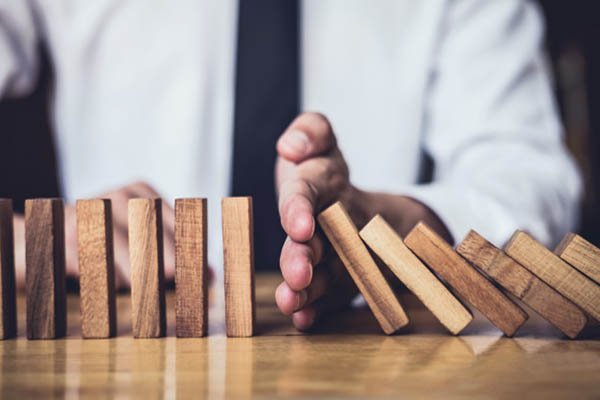
Technology Security: Change is happening right now.
It’s a complicated time to learn all this stuff. My daughter used to work for LifeLock and I remember when she got on television and gave out her Social Security number and all that stuff. You’re like, “You must think this works because nobody wants that.” How much are banks accountable if something happens? Do they back you up and say, “This was attacked. We will give you your money back,” or, “You’re just out of luck,” if that thing happens.
You have the FDIC, so you’re covered for $100,000 or whatever it is. The data breaches are a big deal. A lot of times you don’t see what the impact of those data breaches will be for a year to a couple of years. They’re patient. These criminals are patient. You go on their tour, the dark web. You can buy Social Security numbers. It’s on for $25 apiece. If you look at what’s going on in the background, you would turn off all your devices. You’d want to do everything by pigeon or smoke signals.
I watch CSI Cyber. If you plug in your phone at the airport it was this. I’m like, “What?” I don’t know how much of that was accurate. Did you happen to watch those shows when it was on?
I did because I’d get a kick out of it, but a lot is accurate. We did a test once where I had a buddy of mine. I hire white hats to make sure that we can get our stuff doing what it’s supposed to be doing. They showed me from Paris, they logged on to somebody’s TV and they didn’t even know it was on. It was able to watch somebody on their TV and listen to them.
I didn’t think all TVs had cameras built into them. I know computers.
A lot of these new TVs these cameras because now you could use Skype on them and everything else. In 1980, I used to tell everybody, “You’re sure they’re not putting a little camera in that TV.”
What do you think of Echos?
You have to have security in place. I’ll give you a little scenario then you could take from it what you want. Biometrics is a way for us to determine who that individual is, it could be either your fingerprint, it could be your eyes. It could be your voice. A friend of mine is working with the City of Los Angeles and they have a biometrics for voice so that particular person has certain influxes and everything else. They can now be credentialed and have access to their bank account, to their homes, whatever it is. That little ecosystem could be listening to your voice. What can it do? It could index your voice and have access to if you start using other things. You have to take a look at the chain of events. If they’re using voice biometrics and they have your voice, they can utilize it for nefarious things. Something’s going to happen, but you have to be aware.
I’m not talking about things people don’t know. They are listening to you. If you don’t think that they don’t have access, they’ll listen to you just like if people wanted to get their smart homes. I like smart homes. I like the fact that I can, for example, my sprinkler system. I could turn it on if I’m on a vacation those kinds of things. At the same time, you’re providing access to criminals, people that understand how to hack it. What we want to do is provide the tools to make that platform secure. It’s not secure right now. If I wanted to, I could open up your garage door. Once I’ve got your garage door open, I can walk through your house.
How do we know if we’ve been compromised, if somebody’s got our information?
That’s the hard part. There are tools out there that you could utilize. You want to put firewalls up in place. There are a lot of steps that you need to do. You need to be conscious about it. You don’t need to be fearful but conscious. You need to take smart steps. For example, most people that aren’t in our space that doesn’t pay attention, they get emails and they say, “Mr. Smith, this is Bank of America. Somebody has compromised your password. Could you please change it?” They click it. Change their password. They got phished. They have it. What they don’t do is take enough time to look up at their heading and see, “Where did that email come from?” They’ll notice that it might be instead of Bank of America, it will Ban America. They got something that looks the same and people fall into that trap. It’s the same thing with everything else, you have to pay attention.
If these people would spend as much time figuring out good things as they do these bad things, think how great the world would be.
They’d be wealthy. The problem is that most of them, maybe it’s in their DNA. I can’t figure it out. I don’t understand it. It’s what they do. A friend of mine works for SAIC down in San Diego. He says he would not believe that he works in the Cyber Division. He said, “You would not believe how the Chinese, every second they’re trying to hack our company. It blows my mind.” That’s all they do. They got people in the building and they’re working to see how they can hack in their corporate buildings. They’re people say, “I’m not a big corporation.” Let me ask you a question. Is it easier to get onto smaller people that aren’t paying attention than it is a big corporation? I would say that the individual is more at risk than the corporate people because they have the dollars and the people in place to try to protect them. The small guy doesn’t. Let’s say they get a thousand people to hack them and pull $1,000 out of each person or whatever they’re trying to get out of it. That’s a lot easier to do and they’re unaware. They don’t know what to do.
[bctt tweet=”When you stop moving, you stop growing. When you stop growing, you stop being human.” username=””]Are we going to have more blockchain things to stop all that? Is that going to be the future?
When you take a look at blockchain, it becomes a powerful tool for inventory, for banking because of the way that it functions. It is a powerful tool that’s starting to get a lot of adoption with a lot of countries. Even Wall Street’s taking a look at it because of they’re immutable. The Qubit Blockchain is going to be diagnostic and we’re incorporating AI technology. There’s a thing called smart contracts. We’re now building AI contracts. We’re doing some stuff to make it even more robust, more powerful. We’ve got people that we work with because this space is too big, and we collaborate with some of the smartest guys in the world. I’m not one of them but I do pay attention.
When you say AI contracts, are you talking about like a DocuSign contract?
That’s where people don’t understand and I’m not saying you did watch it. The way a blockchain works is it has to be told to do something and I’m simplifying. What they do is they have a smart contract. The smart contract says that you’re scouring this person a bag of oranges and the price $0.50 and they’re going to pay you $0.50. The $0.50 is going to go here. It then goes through the blockchain but then it affects the cases than the money. Smart contracts are the engine that drives the blockchain. Even in businesses, for example, I have a camera. I sell you the camera for $10.50. It’s supposed to be delivered here. It tells you where to send it, puts it in the ledger. That ledger then authenticates all the deliverables transpired.
If it’s similar to how the Bitcoin and other things work, you have to have a password and not be able to lose that password to be able to have this transaction work. How are we going to keep track of our logins and ways of remembering how we got into all these different transactions?
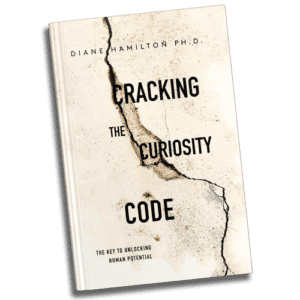
Cracking The Curiosity Code
That’s been the challenge of adoption. What we’ve done as well as our company and I know of other companies is simplifying it. I’ll give you a good example. I worked with a guy named John Jeff. He was a biochemist. He used to do a bunch of stuff in fitness and stuff like that. He says, “I worked hard to simplify the five things, the same things. I broke it down to five things you need to identify.” He made it simple. You need to do the same thing with our technology. It’s got to be user-friendly. It’s got to be quick and then you’ll get more adoption. You’ve got to build the backend that is robust, secure and that’s what we’re working on and then messaging. If you got a wallet, you got this long key that you got to remember. You got to place it somewhere. If you lose it, you can’t get it. That’s what they’re working on. What people are working on as well as their company is the one global digital ID that’s secure, it’s autonomous and it is immutable so that person got their ID.
Anything we can do to make it more secure is important. A lot of people are going to want to know more about Stealth Grid and how they can find you. Can you share some links or how they could reach you?
If they go to StealthGrid.com it will take them to our company. We have some subsidiaries that I’ve created that they can go to and view some of the various technologies as well on their phone. They’ll see some of the smart and safe city projects that we’re working on. That’ll take them to the Qubit Blockchain and you can see what we’re doing there. One of the things that we’re working on is STOs which is a great move for the cryptocurrency space and it’s a great platform. You’ll start seeing a lot of adoption with institutional investors, hedge funds, banks, and everybody else. That’s one of the things that we’re working on as well.
This has been so much fun and interesting. Thank you for being on the show.
Thanks for having me.
You’re welcome.
—
Thank you so much to Arnold and to Larry. They are bright guys. It’s something that we all need to know more about and that blockchain is fascinating. I’ve had other experts on my show. Wolfgang Koester was a great show. If you’ve missed that one, he talked about Bitcoin and different currencies. There are many great guests on the show. If you’ve missed any of them, please go to DrDianeHamiltonRadio.com. You can find out more there. If you’d like to know more about my book, Cracking the Curiosity Code or the Curiosity Code Index, which goes along with the book. Please go to CuriosityCode.com. I hope you join us for the next episode of Take The Lead Radio.
Important Links:
- Unify Earth
- Arnold Strong
- Bo Rinaldi – previous episode
- Do Androids Dream of Electric Sheep?
- Crossing The Chasm
- Dr. Gilda Carle
- Intelligent Communities
- Stealth Grid
- Richard Stallman – previous episode
- StealthGrid.com
- http://StealthCrypto.io/
- Wolfgang Koester
About Arnold Strong

Communications Director – Col. (USA, Ret.) Arnold V. Strong brings three decades’ experience as a communications strategist, management consultant, and operator. His diverse experience spans enterprise-level public, private, defense, academic organizations and technology start-ups. A veteran of combat operations in Iraq and Afghanistan, the US Army Ranger also led peacekeeping training and operations in Bangladesh, Egypt and Ghana. A former executive committee member of a publicly traded company, Strong was also CEO of Portland-based BrightNeighbor® and the founding communications director for DeepCurrent®, a venture-backed, Los Angeles-based artificial intelligence start-up. He serves on the boards of several veteran-focused non-profits.
About Larry Castro
 Larry Castro has years of experience with technology and the growing demands of the industry. His expertise includes the multiple sectors of technology, cloud broadcasting, cybersecurity, and digital media. He built a golf portfolio as an international golf professional, golf fitness visionary, sports marketing strategist and, more recently, executive roles as lead developer, owner, manager and designer of some of the world’s most renowned golf resorts, sports and entertainment facilities. He recently served as an executive for a cross platform technology that was brought to the public market through his strategies and execution. He serves as an active advisor to several technology and sports entertainment companies and has served as the Director and founding Chief Executive Officer at multiple companies. http://stealthcrypto.io http://stealthgrid.com
Larry Castro has years of experience with technology and the growing demands of the industry. His expertise includes the multiple sectors of technology, cloud broadcasting, cybersecurity, and digital media. He built a golf portfolio as an international golf professional, golf fitness visionary, sports marketing strategist and, more recently, executive roles as lead developer, owner, manager and designer of some of the world’s most renowned golf resorts, sports and entertainment facilities. He recently served as an executive for a cross platform technology that was brought to the public market through his strategies and execution. He serves as an active advisor to several technology and sports entertainment companies and has served as the Director and founding Chief Executive Officer at multiple companies. http://stealthcrypto.io http://stealthgrid.com

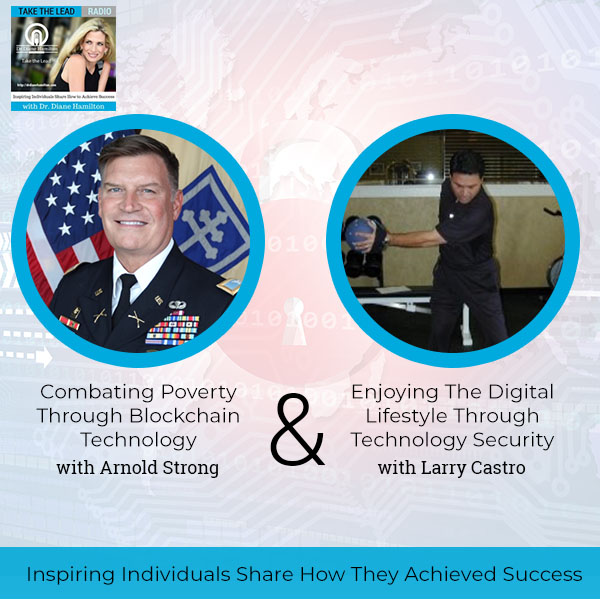

0 Comments